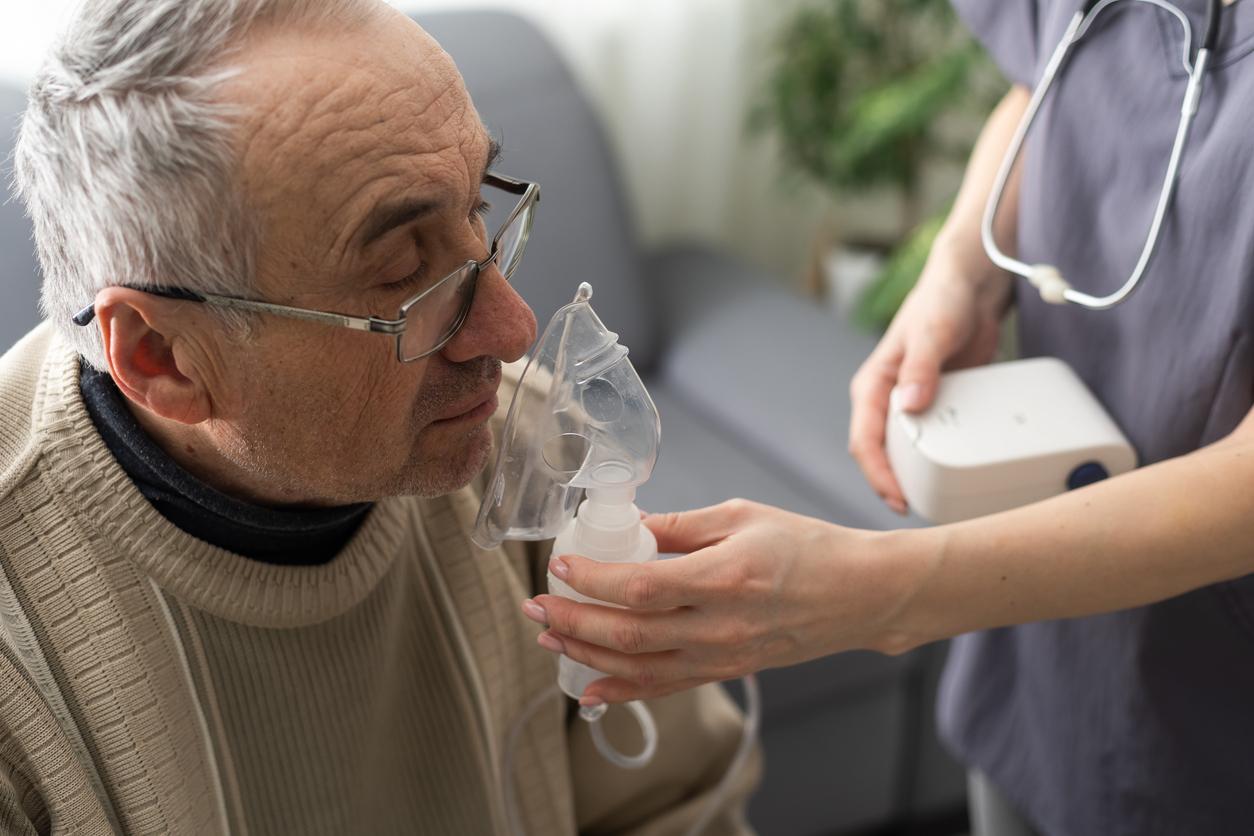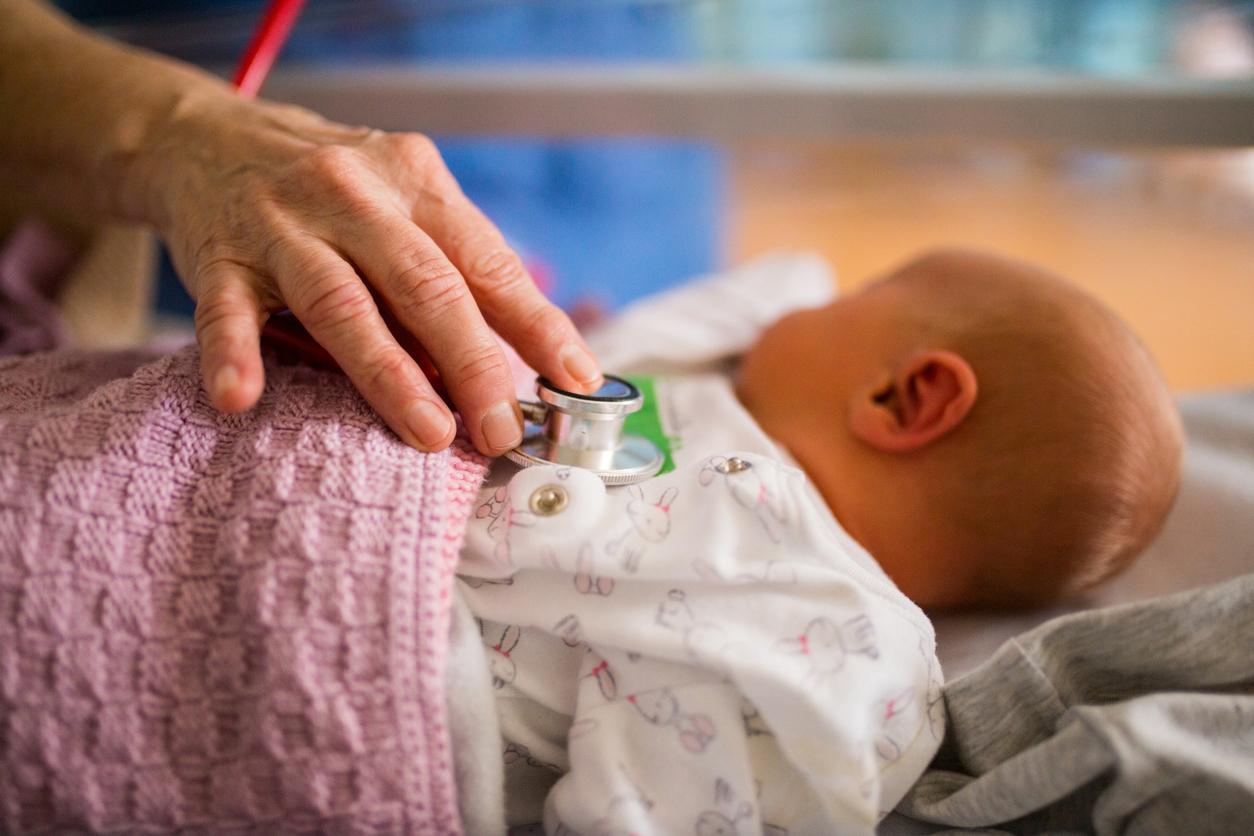- Symptoms: what are the signs of listeriosis?
- Incubation: what is the incubation time for Listeria?
- Pregnancy: what are the risks of listeriosis in pregnant women?
- Diagnosis: how is listeriosis diagnosed?
- Pregnancy: what are the risks of listeriosis in pregnant women?
- Food: what foods to avoid during pregnancy?
- Prevention: how to protect yourself and avoid listeriosis?
On January 20, the Directorate General of Health reports 5 serious cases of listeriosis, including 4 in pregnant women having had preterm deliveries. They had consumed vegetable specialties (cheese alternatives) with almond milk and cashew nuts manufactured and marketed under the Jay & Joy brand.
These 5 people, infected with the same strain of Listeria, reported symptoms between April and December 2022, the press release states.
After investigation by the health (SPF and DGS) and food (DGAI) authorities, the National Listeria Reference Center, and the Competition, Consumption and Fraud Control Department (DGCCRF), it was shown that the reported cases had consumed these plant specialties in the weeks preceding their listeriosis.
In addition, the investigations revealed “irregularities of the company, in particular concerning the control of the risk of microbiological contamination of the products manufactured within the factory”. As a result, “a prefectural decree, aimed at suspending the marketing of all products stored and manufactured in the factory, was issued on January 16, 2023.”
JAY&JOY proceeded with the withdrawal-recall of all the products manufactured by the company on January 14, 2023. At this stage, the epidemiological and microbiological surveillance measures implemented by SpFrance and the CNR Listeria of the Institut Pasteur are continue.
The details of the products concerned by the withdrawal-recall are available on rappel.conso.gouv.fr. People holding these products are asked not to consume them and to return them to the point of sale where they purchased them.
Have you consumed these Jay & Joy products? People who have consumed products concerned by the alert and who present within 10 days to 2 months following the consumption of the product fever, isolated or accompanied by headaches and digestive disorders (nausea, vomiting and diarrhoea), are invited to consult their doctor by informing him of this food consumption at risk.
Food products are regularly recalled due to a suspicion of infection by the Listeria bacterium. Recently, they had touched Kinder chocolates and Buitoni pizza.
To note. In France, listeriosis remains a rare disease since only 5 to 6 cases are recorded per million inhabitants per year. In 2015, nearly 350 cases of listeriosis were recorded in mainland France.
Symptoms: what are the signs of listeriosis?
In a healthy person, bacterial infection with Listeria monocytogenes generally goes unnoticed since the pathogen is quickly destroyed by the immune system: there are therefore no symptoms.
On the other hand, in an elderly and/or immunocompromised person (i.e.: suffering from a chronic disease such as diabetes, cirrhosis or obesity, or suffering from cancer, or under immunosuppressive treatment) , the bacterium multiplies in the bloodstream and we can observe:
- Respiratory distress: irregular and noisy breathing, accelerated heart rate, severe headaches, bluish lips and extremities (fingers, toes), discomfort…
- Neurological symptoms reflecting meningoencephalitis: behavioral disorders, photophobia (significant discomfort with light), stiff neck…
- Septic shock: confusion, agitation, high fever (above 38°C), rash…
Incubation: what is the incubation time for Listeria?
THE incubation time bacteria Listeria monocytogenes (i.e. the time between contamination and the appearance of the first symptoms of the disease) is quite variable: it is generally between a few days and two months (7-8 weeks).
It should be noted that, in the most severe cases (sepsis and neurological forms), the first symptoms of listeriosis can appear very quickly, within a few days.
Pregnancy: what are the risks of listeriosis in pregnant women?
During pregnancy, bacterial infection Listeria monocytogenes can have serious consequences on the health and development of the unborn child. “The bacterium crosses the placental barrier and can be responsible for in utero death or spontaneous abortion (miscarriage)” says Dr. Bastid.
If the disease is, in general, without consequences for the mother, the child can be born prematurely and present a severe infection at birth combining sepsis, pulmonary infection, neurological neurological involvement and/or skin involvement.
Doctor’s advice: “in a pregnant woman, an unexplained fever (above 38°C) must absolutely be the subject of a medical consultation because it is a sign that may suggest listeriosis” recommends Dr. Bastid.
Diagnosis: how is listeriosis diagnosed?
The diagnosis of listeriosis consists of a blood test (serology) then a blood culture: “the blood is “cultured” in the laboratory to show the presence of the bacteria“ develops the gastroenterologist. The disease can also be confirmed after microbiological analysis of the placenta, cerebrospinal fluid, ascites fluid, joint puncture or perinatal samples.
To note. In France, listeriosis has been a notifiable disease since 1998: this means that the doctor or the medical analysis laboratory must inform the health authorities (Regional Health Agency) when he detects a case of listeriosis.
Treatment: how is listeriosis treated?
Good news: listeriosis is not an antibiotic resistant bacterium. “The treatment of the disease is based on the administration of antibiotics (ampicillin and / or gentamicin)“ explains the gastroenterologist.
Unsurprisingly, the treatment of infection with Listeria monocytogenes is all the more effective when administered early – including to pregnant women, to limit the impact on the foetus.
Food: what foods to avoid during pregnancy?
The best treatment for listeriosis is prevention. Fragile people (elderly or immunocompromised) as well as pregnant women should therefore avoid raw foods – “be careful, the bacterium Listeria monocytogenes can be present in plant foods as in animal foods“says Dr. Bastid. Here is the list of foods to avoid:
- Delicatessen in jelly,
- Rillettes and pâtés,
- Foie gras,
- Raw milk cheeses: Pont l’Évêque, maroilles, camembert…
- Soft cheeses: Brie, Coulommiers, Munster…
- Smoked fish: salmon, trout…
- Raw fish: sushi, sashimi…
- surimi,
- Tarama,
- Raw meats: tartars, raw hams…
- Raw shellfish: oysters…
- Raw sprouted seeds.
Attention ! “The bacterium Listeria monocytogenes does not modify the taste of food; it is therefore not possible to differentiate a contaminated food from an uncontaminated food by taste or smell” notes Dr. Bastid.
To note. The bacterium Listeria monocytogenes is destroyed after cooking for 30 minutes at 60°C.
Prevention: how to protect yourself and avoid listeriosis?
To prevent listeriosis, some good reflexes (inspired by common sense!) are essential, especially in the kitchen:
- Wash fruits and vegetables well before consumption,
- Regularly clean your refrigerator with soapy water, ideally once a month,
- Regularly check the temperature of the refrigerator: “it must be around 4°C in order to limit the proliferation of bacteria, including Listeria monocytogenes” recommends Dr. Bastid,
- Respect the use-by dates (DLC) / food expiry dates,
- Wash your hands regularly and thoroughly clean kitchen utensils – knives…
- Carefully reheat leftover food and cooked meals before consumption;
Sources:
- DGS press release, January 20, 2023.
- Pastor Institute
- Ministry of Health
- Interview Dr. Christophe Bastid, gastroenterologist at the Clinique Bouchard in Marseille (ELSAN group).


















